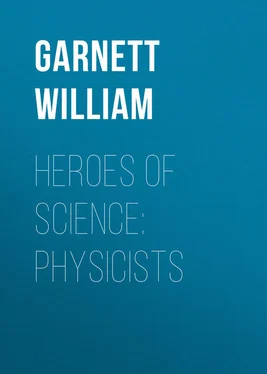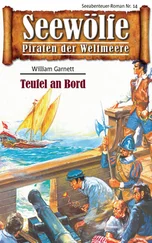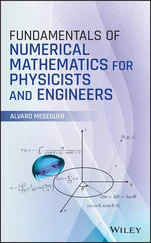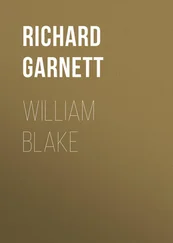William Garnett - Heroes of Science - Physicists
Здесь есть возможность читать онлайн «William Garnett - Heroes of Science - Physicists» — ознакомительный отрывок электронной книги совершенно бесплатно, а после прочтения отрывка купить полную версию. В некоторых случаях можно слушать аудио, скачать через торрент в формате fb2 и присутствует краткое содержание. Жанр: foreign_antique, foreign_prose, на английском языке. Описание произведения, (предисловие) а так же отзывы посетителей доступны на портале библиотеки ЛибКат.
- Название:Heroes of Science: Physicists
- Автор:
- Жанр:
- Год:неизвестен
- ISBN:нет данных
- Рейтинг книги:5 / 5. Голосов: 1
-
Избранное:Добавить в избранное
- Отзывы:
-
Ваша оценка:
- 100
- 1
- 2
- 3
- 4
- 5
Heroes of Science: Physicists: краткое содержание, описание и аннотация
Предлагаем к чтению аннотацию, описание, краткое содержание или предисловие (зависит от того, что написал сам автор книги «Heroes of Science: Physicists»). Если вы не нашли необходимую информацию о книге — напишите в комментариях, мы постараемся отыскать её.
Heroes of Science: Physicists — читать онлайн ознакомительный отрывок
Ниже представлен текст книги, разбитый по страницам. Система сохранения места последней прочитанной страницы, позволяет с удобством читать онлайн бесплатно книгу «Heroes of Science: Physicists», без необходимости каждый раз заново искать на чём Вы остановились. Поставьте закладку, и сможете в любой момент перейти на страницу, на которой закончили чтение.
Интервал:
Закладка:
Franklin founded the American Philosophical Society in 1743. The head-quarters of the society were fixed in Philadelphia, where it was arranged that there should always be at least seven members, viz. a physician, a botanist, a mathematician, a chemist, a mechanician, a geographer, and a general natural philosopher, besides a president, treasurer, and secretary. The other members might be resident in any part of America. Correspondence was to be kept up with the Royal Society of London and the Dublin Society, and abstracts of the communications were to be sent quarterly to all the members. Franklin became the first secretary.
Spain, having been for some years at war with England, was joined at length by France. This threatened danger to the American colonies, as France then held Canada, and no organization for their defence existed. Franklin published a pamphlet entitled "Plain Truth," setting forth the unarmed condition of the colonies, and recommending the formation of a volunteer force for defensive purposes. The pamphlet excited much attention. A public meeting was held and addressed by Franklin; at this meeting twelve hundred joined the association. At length the number of members enrolled exceeded ten thousand. These all provided themselves with arms, formed regiments and companies, elected their own officers, and attended once a week for military drill. Franklin was elected colonel of the Philadelphia Regiment, but declined the appointment, and served as a private soldier. The provision of war material was a difficulty with the Assembly, which consisted largely of Quakers, who, though they appeared privately to be willing that the country should be put in a state of defence, hesitated to vote in opposition to their peace principles. Hence it was that, when the Government of New England asked a grant of gunpowder from Pennsylvania, the Assembly voted £3000 "for the purchasing of bread, flour, wheat, or other grain ." Pebble-powder was not then in use. When it was proposed to devote £60, which was a balance in the hands of the Union Fire Company, as a contribution towards the erection of a battery below the town, Franklin suggested that it should be proposed that a fire-engine be purchased with the money, and that the committee should "buy a great gun, which is certainly a fire-engine ."
The "Pennsylvania fireplace" was invented in 1742. A patent was offered to Franklin by the Governor of Pennsylvania, but he declined it on the principle " that, as we enjoy great advantages from the inventions of others, we should be glad of an opportunity to serve others by any invention of ours; and this we should do freely and generously ." An ironmonger in London made slight alterations, which were not improvements, in the design, and took out a patent for the fireplace, whereby he made a "small fortune." Franklin never contested the patent, "having no desire of profiting by patents himself," and "hating disputes." This fireplace was designed to burn wood, but, unlike the German stoves, it was completely open in front, though enclosed at the sides and top. An air-chamber was formed in the middle of the stove, so arranged that, while the burning wood was in contact with the front of the chamber, the flame passed above and behind it on its way to the flue. Through this chamber a constant current of air passed, entering the room heated, but not contaminated, by the products of combustion. In this way the stove furnished a constant supply of fresh warm air to the room, while it possessed all the advantages of an open fireplace. Subsequently Franklin contrived a special fireplace for the combustion of coal. In the scientific thought which he devoted to the requirements of the domestic economist, as in very many other particulars, Franklin strongly reminds us of Count Rumford.
The next important enterprise which Franklin undertook, partly through the medium of the Junto, was to establish an academy which soon developed into the University of Philadelphia. The members of the club having taken up the subject, the next step was to enlist the sympathy of a wider constituency, and this Franklin effected, in his usual way, by the publication of a pamphlet. He then set on foot a subscription, the payments to extend over five years, and thereby obtained about £5000. A house was taken and schools opened in 1749. The classes soon became too large for the house, and the trustees of the academy then took over a large building, or "tabernacle," which had been erected for George Whitefield when he was preaching in Philadelphia. The hall was divided into stories, and at a very small expense adapted to the requirements of the classes. Franklin, having taken a partner in his printing business, took the oversight of the work. Afterwards the funds were increased by English subscriptions, by a grant from the Assembly, and by gifts of land from the proprietaries; and thus was established the University of Philadelphia.
Having practically retired from business, Franklin intended to devote himself to philosophical studies, having commenced his electrical researches some time before in conjunction with the other members of the Library Company. Public business, however, crowded upon him. He was elected a member of the Assembly, a councillor and afterwards an alderman of the city, and by the governor was made a justice of the peace. As a member of the Assembly, he was largely concerned in providing the means for the erection of a hospital, and in arranging for the paving and cleansing of the streets of the city. In 1753 he was appointed, in conjunction with Mr. Hunter, Postmaster-General of America. The post-office of the colonies had previously been conducted at a loss. In a few years, under Franklin's management, it not only paid the stipends of himself and Mr. Hunter, but yielded a considerable revenue to the Crown. But it was not only in the conduct of public business that Franklin's merits were recognized. By this time he had secured his reputation as an electrician, and both Yale College and Cambridge University (New England) conferred on him the honorary degree of Master of Arts. In the same year that he was made Postmaster-General of America he was awarded the Copley Medal and elected a Fellow of the Royal Society of London, the usual fees being remitted in his case.
Before his election as member, Franklin had for several years held the appointment of Clerk to the Assembly, and he used to relieve the dulness of the debates by amusing himself in the construction of magic circles and squares, and "acquired such a knack at it" that he could "fill the cells of any magic square of reasonable size with a series of numbers as fast as" he "could write them." Many years afterwards Mr. Logan showed Franklin a French folio volume filled with magic squares, and afterwards a magic "square of 16," which Mr. Logan thought must have been a work of great labour, though it possessed only the common properties of making 2056 in every row, horizontal, vertical, and diagonal. During the evening Franklin made the square shown on the opposite page. "This I sent to our friend the next morning, who, after some days, sent it back in a letter, with these words: 'I return to thee thy astonishing and most stupendous piece of the magical square, in which – ;' but the compliment is too extravagant, and therefore, for his sake as well as my own, I ought not to repeat it. Nor is it necessary; for I make no question that you will readily allow this square of 16 to be the most magically magical of any magic square ever made by any magician."
The square has the following properties: – Every straight row of sixteen numbers, whether vertical, horizontal, or diagonal, makes 2056.
Every bent row of sixteen numbers, as shown by the diagonal lines in the figure, makes 2056.
If a square hole be cut in a piece of paper, so as to show through it just sixteen of the little squares, and the paper be laid on the magic square, then, wherever the paper is placed, the sum of the sixteen numbers visible through the hole will be 2056.
Читать дальшеИнтервал:
Закладка:
Похожие книги на «Heroes of Science: Physicists»
Представляем Вашему вниманию похожие книги на «Heroes of Science: Physicists» списком для выбора. Мы отобрали схожую по названию и смыслу литературу в надежде предоставить читателям больше вариантов отыскать новые, интересные, ещё непрочитанные произведения.
Обсуждение, отзывы о книге «Heroes of Science: Physicists» и просто собственные мнения читателей. Оставьте ваши комментарии, напишите, что Вы думаете о произведении, его смысле или главных героях. Укажите что конкретно понравилось, а что нет, и почему Вы так считаете.












